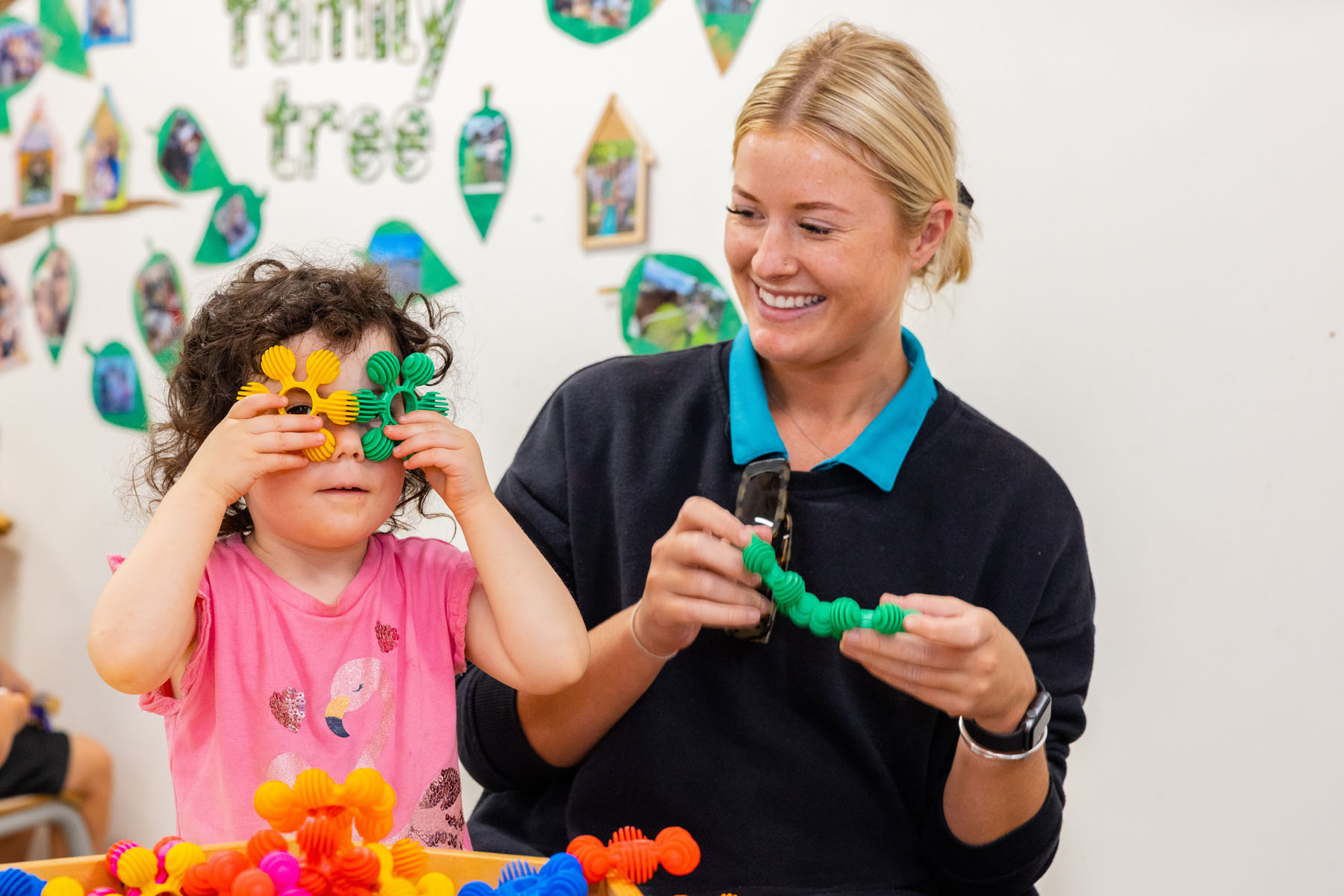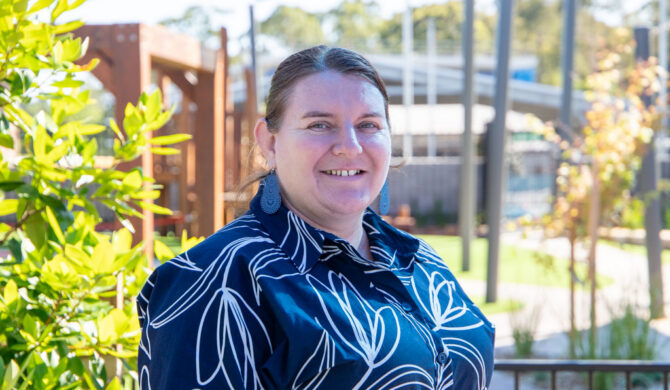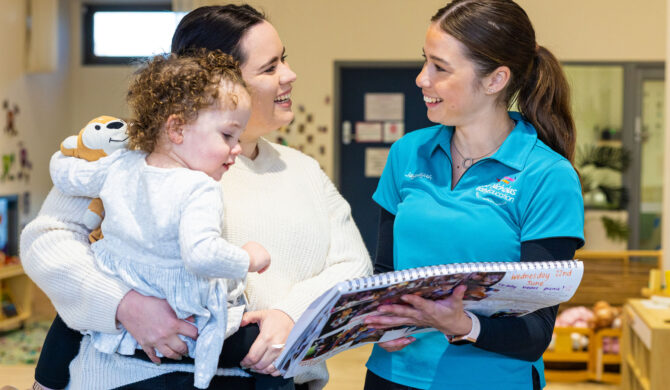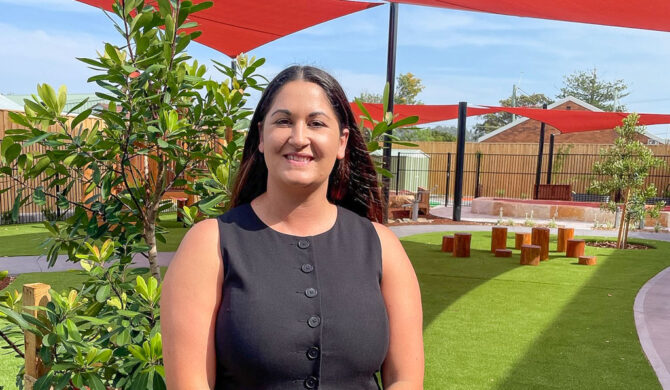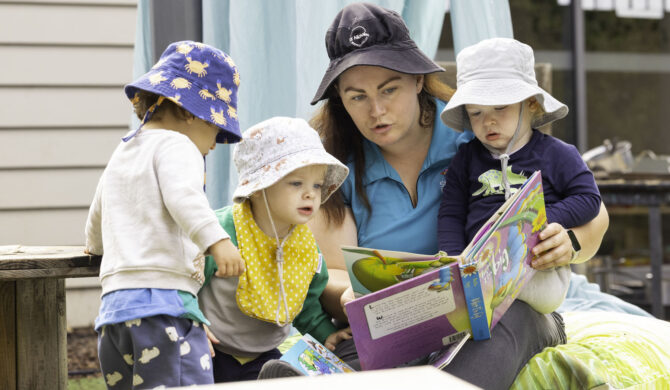In Australia, play-based learning is a widely adopted approach in early education centres that promotes a child’s natural curiosity, creativity, and love for learning. In this article, we’ll explore what play-based learning is, its advantages and why it should be a crucial factor in your search for an early education centre.
Understanding play-based learning
Play-based learning is an educational philosophy that places play at the heart of a child’s learning experience. It recognises that children learn best when they are actively engaged in hands-on, meaningful activities that are enjoyable and purposeful. Play becomes the vehicle through which children explore, make sense of the world around them and develop a wide range of skills.
In a play-based learning environment, children are encouraged to use their imaginations, solve problems, collaborate with others and express themselves. It promotes holistic development by incorporating cognitive, social, emotional and physical aspects of learning. By creating a supportive and nurturing space, play-based learning enables children to take risks, make choices and become independent learners.
Advantages of play-based learning
- Promotes creativity and imagination: Play-based learning fosters imaginative thinking and creativity. Through pretend play, children can become superheroes, doctors or chefs, allowing them to explore different roles and situations. This imaginative play stimulates critical thinking, problem-solving skills and encourages divergent thought.
- Develops social and emotional skills: Play-based learning provides ample opportunities for children to interact with their peers, negotiate, and cooperate. They learn essential social skills such as sharing, taking turns and resolving conflicts. This environment also nurtures emotional development, helping children manage their feelings and develop empathy for others.
- Enhances cognitive skills: Play-based learning is not just about fun and games; it’s a powerful tool for cognitive development. Whether it’s building with blocks, sorting objects, or engaging in sensory play, children are constantly learning and refining their cognitive skills such as memory, concentration, problem-solving, and logical reasoning.
- Builds language and communication skills: Play-based learning encourages language development as children engage in conversations, express ideas, and expand their vocabulary. Storytelling, singing songs and engaging in dramatic play all contribute to developing strong communication skills, which are essential for future academic success.
- Fosters a love for learning: By making learning enjoyable and meaningful, play-based learning instills a lifelong love for learning in children. It nurtures their natural curiosity, intrinsic motivation and desire to explore the world around them. When children are actively engaged and having fun, they become more receptive to new knowledge and experiences.
Finding an early education centre that embraces play-based learning
When searching for an early education centre that incorporates play-based learning, keep these key factors in mind:
- Philosophy: Look for a centre that explicitly states play-based learning as its educational philosophy. Read their mission and vision statements to ensure they align with your child’s developmental needs and values.
- Qualified educators: Inquire about the qualifications and expertise of the centre’s educators. Skilled educators who understand the principles of play-based learning can guide children effectively and create an optimal learning environment.
- Play-based curriculum: Ask about the centre’s curriculum and how play is integrated into the daily activities. A well-designed play-based curriculum should include a balance of child-directed and teacher-guided activities that promote exploration, creativity, and learning.
- Play environments: Visit the centre and observe the play spaces. Look for areas that stimulate different types of play, such as dramatic play, construction, sensory experiences and outdoor play. A well-designed environment should be inviting, safe, and support children’s natural curiosity.
Play-based learning is a research-backed educational approach that harnesses the power of play to support a child’s holistic development. By actively engaging children in meaningful, hands-on experiences, play-based learning fosters creativity, social skills, cognitive abilities and a lifelong love for learning. When searching for an early education centre, consider the benefits of play-based learning and find a nurturing environment that embraces this approach, setting your child up for a bright and successful educational journey.


